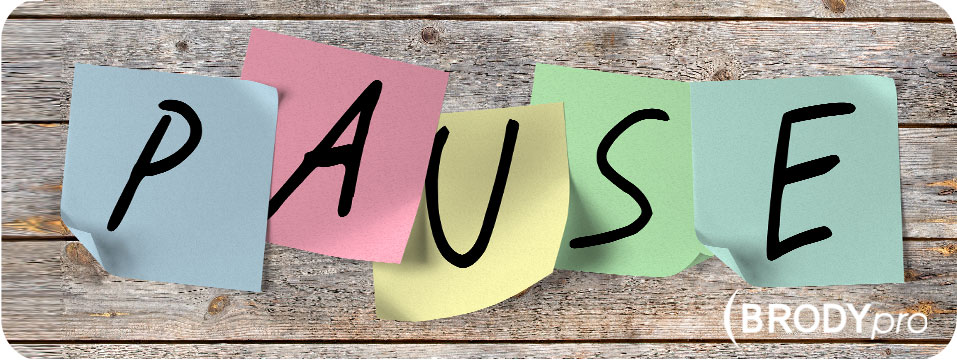Have you ever heard the saying, “silence is golden”?
While it may be true, it can seem not to apply in the case of a business presentation. But silence, in the form of a well-timed pause, can be very effective when speaking (whether one-on-one or to larger audiences).
I once observed a coaching session for amateur speakers who were trying to break into the professional arena. The facilitator instructed each participant to give the opening line of their presentation, and then pause for five seconds while looking around to the audience members. Sounds simple, right?
The facilitator gave this instruction to each speaker immediately as he or she took the stage, so there was no time to forget it. And yet, not a single one of them could do it. The facilitator would then interrupt, turn to the audience, and say, “What did they miss?” We eagerly responded, “They didn’t pause!”
It started to become hilarious, and those of us safe in the audience laughed harder each time it happened. Frequently, even after being interrupted and reminded, the speaker still couldn’t hold the pause for the required five seconds.
Why do you think that was?
Silence might be golden, but when it comes to giving presentations, it’s extremely uncomfortable. Imagine standing in front of a room full of people staring at you, waiting… and you saying nothing… yikes.
But they are worth it. You work diligently on your opening line, creating a powerful and attention-grabbing message. Why not give your listeners the chance to absorb it?
If you said something powerful or emotional, it gives listeners the chance to really feel their response to it. If you said something funny, you won’t want to talk over the laughter!
And in the same way that a good appetizer can increase your hunger for the main dish, a pause can increase your audience’s curiosity for the information you’re going to share next.
Once you get used to the pause, you’ll appreciate its many benefits to you as the speaker such as:
- Taking a moment to gauge the interest and focus of your audience
- Considering whether you need to slow down, or even change direction
- Giving you the chance to relax and collect your thoughts (if you are nervous, your breathing might become choppy, so pause when you need to take a breath)
Strategic pauses show that you are relaxed, present, and comfortable in front of your audience.
In part two, we’ll look at when to pause, and how to work pauses into your talk.
